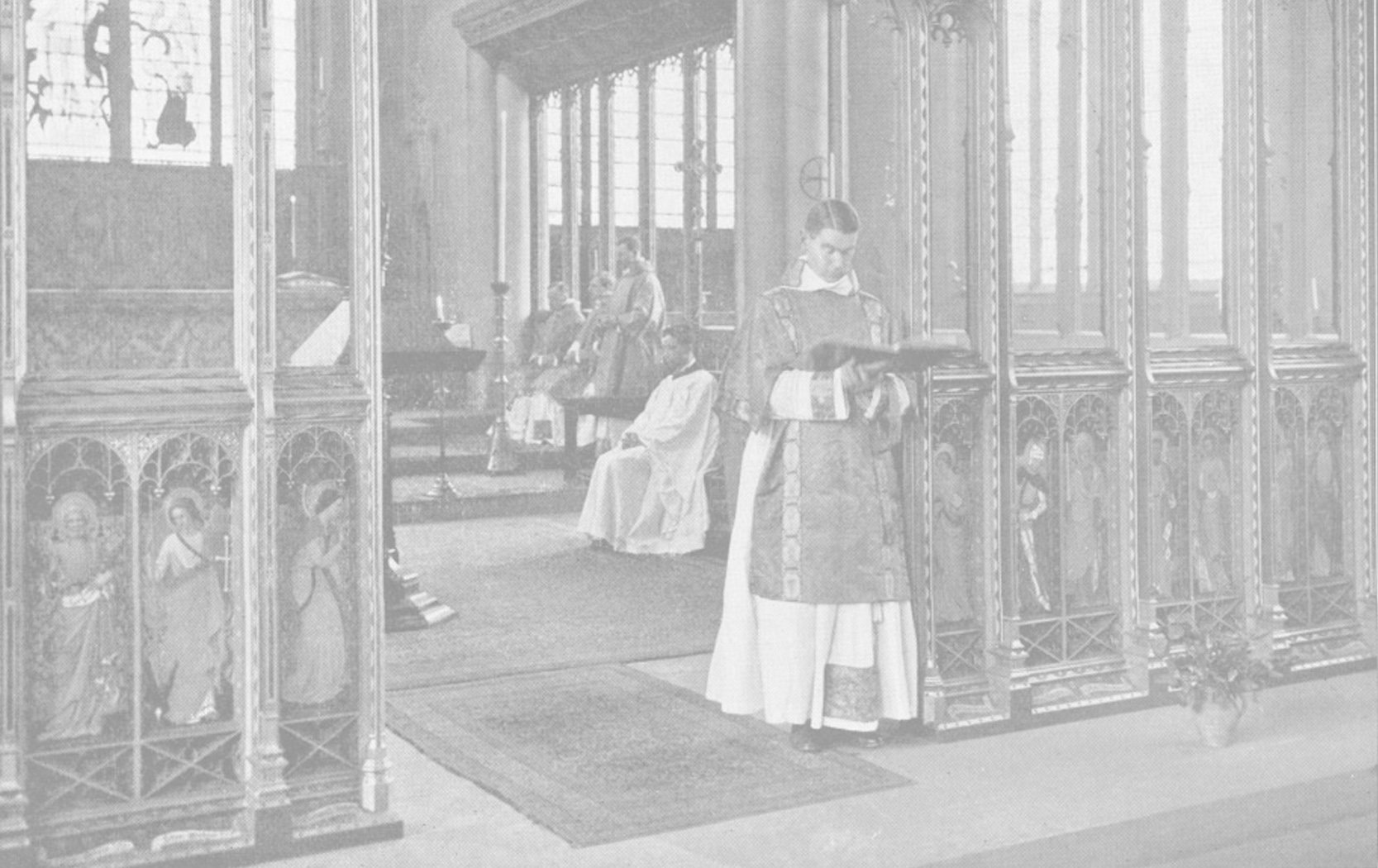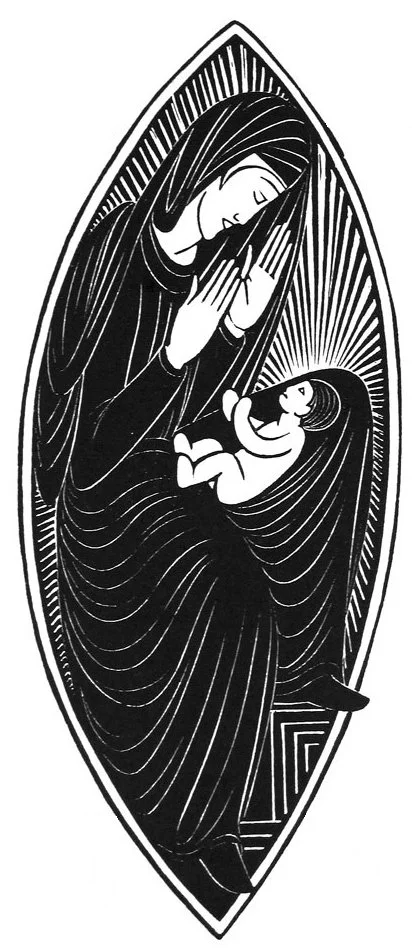
Encouragement for Trusts in Canada
There are several ways to establish an official Ordinariate community. Empowered by the magisterial document For a Synodal Church: Communion, Participation, Mission (2024), the members of Domus Anglicana have compiled the following to assist groups that do not yet have priestly oversight—a requirement for recognition as an official community within the Ordinariate of the Chair of Saint Peter. If your group does have a priest or Anglican clergyman, we encourage you to contact the Chancery in Houston for direction. When discerning whether to associate in friendship with Domus Anglicana, or to establish a new Trust within your locality, the following will be helpful:
A Trust cannot be founded solely through online engagement or simply reading about the Ordinariate. There must be a lived and tangible experience of the English and Anglican Patrimony.
A sufficient number of committed individuals must be gathered locally, united in their dedication to the Ordinariate’s mission in Canada and beyond. The Trust must be fundamentally oriented toward authentic Christian community.
Canonical membership registration is vital. The Dicastery for the Doctrine of the Faith uses these figures to inform decisions affecting our presence in Canada. You must have canonical members of the Ordinariate as leaders and members of your Trust group.
The Ordinariate welcomes all who respond to its missionary outreach: Anglicans in full communion, former Protestants and unbelievers, Catholic reverts, former members of other world religions, and faithful cradle Catholics. All must be ready to embrace the radical Christian discipleship the Ordinariate fosters.
This discipleship is lived through our English Patrimony, not in a casual or half-hearted way. Founding a Trust—and potentially a parish in the future—requires dedication to a mission that may not come to fruition within one’s lifetime.
The Ordinariate is outward-facing and evangelistic, committed to the conversion of hearts and souls. It is not a refuge for disaffected Catholics or a retreat from the world. Rather, it offers a beautiful way to live the saving Gospel of Jesus Christ and to build up the Kingdom. Think of the Ordinariate as a choir: each member must learn their part and sing it well, bringing it into harmony with the whole. We reject division or conflict within the Church.
Though sometimes mischaracterised as ‘traditional Catholics’ or as offering the ‘Traditional Latin Mass in English,’ we are simply Catholics. Our liturgy and customs possess their own integrity, history, and internal logic. We are faithful to the Church’s Magisterium, including the Catechism of St. John Paul II and the Second Vatican Council.
The family is central to the Ordinariate’s efforts. We aim to support parents in their primary vocation, while also welcoming singles and those without children into the heart of our community. We equip all members to flourish as faithful Catholics and to bring others to Christ and His Church.
We treasure our Anglican and English traditions—once severed from the Catholic Church, now restored to full communion. Our patrimony, particularly our Prayer Book, offers a deep well of spirituality: a toolbox for evangelisation, an unapologetically Catholic way of life, rich in faith, history, and culture.
When establishing your Trust group, be clear about leadership, planned activities, and your model of community life. The following practices are recommended:
Form a Vestry to share group leadership responsibilities. This might include a lay reader to lead Morning or Evening Prayer and a Warden, who also serves as a member of the Domus Anglicana Vestry.
If funds are to be collected and managed, include appropriate financial officers and ensure sound oversight.
Gather regularly for the Daily Office (Mattins and Evensong) and include other communal activities beyond liturgy. The Ordinariate is not interested in offering ‘boutique’ liturgical events but rather seeks authentic, joyful communities of faith.
Lay-led liturgies should follow Divine Worship: The Daily Office (Commonwealth Edition). Domus Anglicana can provide support in using this resource.
Ensure your group has access to Ordinariate prayer books, the Canadian Ordinariate calendar, Ordo, and other relevant materials.
Fellowship is essential in a fragmented and isolating world. Establish regular opportunities for shared meals, learning, and spiritual growth. Whenever possible, organise retreats, workshops, and in-person gatherings. Avoid overreliance on virtual substitutes.
In the early stages, it may not be possible to include the Ordinariate Form of the Mass (Divine Worship) regularly, as priestly availability is limited in Canada. It is perhaps best for members to attend Mass together at a local diocesan parish to maintain unity and foster mutual support. Although the desire for the Ordinariate Form of the Mass is natural and good, practical limitations must be acknowledged. Diocesan clergy may be willing to celebrate the Ordinariate Mass, but may do so only with permission from both their bishop and ours.
Explore whether other Trusts exist nearby. Shared events and cooperative efforts are encouraged. As new Trusts form across Canada, Domus Anglicana will organise regional gatherings. Consider additional initiatives—such as homeschooling co-operatives, outreach to the poor or addicted, or other works of mercy.
Members are encouraged to subscribe to the Domus Anglicana Flocknote service to stay connected with the wider Ordinariate movement in Canada. It is an excellent Catholic communication platform, developed by an Ordinariate member.
It must be clearly understood: a Trust is not an official Ordinariate community or parish. It serves Ordinariate members but is not an Ordinariate structure. Any Trust associated with Domus Anglicana should follow the established naming convention to make this clear and must never represent themselves as an Ordinariate community.
Every Trust must ensure a safe environment for all activities, in accordance with diocesan norms. Safeguarding children and vulnerable adults is a sacred obligation. Abuse, particularly sexual abuse, destroys individuals and the Church. We all must remain vigilant.
The Prayer Book is foundational to our life. For over 475 years, its Offices have trained and nourished Christian believers. Now Catholic, it fulfils the Second Vatican Council’s vision of making the Divine Office accessible. The Prayer Book tradition forms the Christian in true doctrine and trained prayer. It is no surprise that many Canadian pioneers preserved their faith with little more than the Prayer Book and family Bible.
Ordinariate canonical members have a right to pastoral care and the sacraments. Domus Anglicana will advocate for your needs.
Where no Ordinariate parish exists, Trusts should support their local diocesan parish. We are Catholics, full stop. Positive relationships with diocesan clergy and parishioners are vital. We are not here to be divisive or to shelter disaffected Catholics. We have a joyful vision of the Catholic faith to share with our brothers and sisters in the diocesan Church.
If this vision resonates with you, and others share your passion for the Ordinariate’s evangelising mission, then it may be time to discern whether founding a Trust is right for your group. Your leadership matters, and we look forward to discerning and building with you in the days to come.

“God has created me to do Him some definite service. He has committed some work to me which He has not committed to another. I have my mission…”
—St. John Henry Newman


